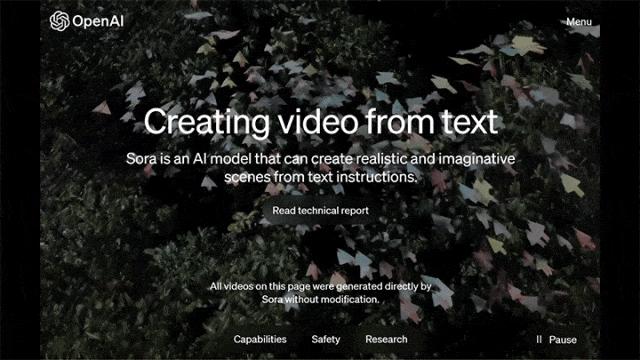OpenAI has recently been working on upgrading its video AI Sora, a project that was originally unveiled in February of this year.
OpenAI is working on an upgraded version of its video AI, Sora, which is designed to produce longer, higher-quality video clips faster than the original demo, The Information reported, citing sources close to the company's management team.

It's worth noting that Sora wasn't exactly ready when it was released. The initial video generation was said to have taken over ten minutes, and the feedback from some of the filmmakers was quite negative. For example, producer Patrick Cederberg generated hundreds of videos in order to get a usable clip, but the model didn't perform well at keeping grids, objects, and characters consistent. It also suffered from a number of physics errors, which are not uncommon in other video models.
To improve Sora's performance, OpenAI is collecting millions of hours of high-resolution video footage, covering a variety of styles and topics, as a way to reduce bias and improve model stability. The goal is to make the generated videos more consistent in style and content, as well as to better meet the needs of users.
In the meantime, OpenAI has also stated that Sora is still in the research phase as they are in discussions with policymakers, and OpenAI's CTO Mira Murati said in mid-March that Sora will definitely be released this year, but the cost of generating video still needs to be lowered, as the system is currently much more expensive than existing AI systems. Much more.
Since Sora launched in February, the video AI market has become more competitive. In China alone, four new video AI systems have appeared, including Keling, Vidu, Instant Dream, and MiniMax's Conch Video. And Run ML has also launched two new models and entered into a partnership with Lionsgate Shadow.